In her keynote address to 2018 Conference on World Mission and Evangelism organised by the World Council of Churches in Arusha, Tanzania, Rev. Dr Mutale Mulenga-Kaunda spoke about the unique African ecumenical perspective especially before the European invasion. According to her, “Africans are indeed ecumenical by nature, as we float in our indigenous/traditional, Islamic and Christian worldviews easily in order to find meaning in life and in death.” She continued, “The church, especially within the African context, has to serve as a missional resource for all people that live on the margins of their society, who are seeking to overcome forces that bequeath death.” The problem today is that the bride of Christ have stopped the momentum of the gospel in their lives due to personal grudges, self/denominational interests and divisions. The Christian Council of Nigeria (CCN) at 90 urgently need a single theological-voice to bring hope to many Nigerians living ‘on the margins of their society, who are seeking to overcome forces that bequeath death.’
In the words of Professor Onwuka Dike, the first Nigerian Vice-Chancellor of the University of Ibadan, the premier university in Nigeria, ‘modern missionary activities in Nigeria cannot, of course, be viewed apart from the general European invasion of the West African territories from the advent of the Portuguese.’ The invasion coupled with the crusading zeal in Europe came with one and indivisible commercial and religious issues with divisions. In agreement with the words of the former Anglican bishop of Dornakal (India), Professor Bolaji Idowu, the first Patriarch, Methodist Church Nigeria, explained that modern missionary came with different denominational nomenclatures, hence Christian relationship ‘is one of regrettable tension.’
This tension gave rise to the search for ecumenical unity in the Nigerian context that climaxed with the establishment of the Christian Council of Nigeria (CCN), the Central Organisation for the traditional Protestant Churches of Nigeria on the 14th of March 1930 comprising the mainstream Protestant churches. Charles Williams, an ecumenical trail-blazer, writer, a former General Secretary and Adviser on Education of the CCN provides some background behind the origin and vision of CCN since 1927.
The vision for CCN was first proposed by a small informal gathering of missionaries who met in Oyo, Western Nigeria in November 1929 to consider the immediate set of a new Educational Proposals, ‘a United Missionary Council for Education representing all the Societies willing to join.’ This was followed by a representative gathering of Missionaries and Africans held at Bishop’s court, Lagos on December 16th, 1929 where it was ‘decided that a United Missionary Council should be formed and it was agreed that the area affected should be those covered by the Education Code for the Southern Provinces, and that the Council should be competent to deliberate upon all matters of Missionary Policy.’ Based on the agreement of the Missionary Societies to unite, the first meeting of the United Council was held in Lagos on the 14th of March, 1930 to the 19th of March, 1930 where the Constitution was decided and the name of the Council changed to the “Christian Council of Nigeria.” The original members of the Council were: Basel Mission, Church Missionary Society (Niger Mission), Church Missionary Society (Yoruba Mission), Church of Scotland Mission, Niger-Delta Pastorate, Nigerian Baptist Convention, Primitive Methodist Missionary Society, Qua Iboe Mission, Salvation Army, and Wesleyan Methodist Missionary Society.
The CCN, originally known as a Missionary Association, was empowered generally to deliberate upon all matters of Missionary Policy. The growth of CCN necessitated its increasing role and the development of the Nigerian Society through various activities in which the Church feels committed: ‘Education, Social, Community and Economic Development, Home and Family Life, and Church and Society.’CCN developed into a National Christian Organisation through the amendment of its constitution in 1963. The formation of CCN got impetus from the formation of the International Missionary Council (IMC) formed at Lake Mohonk, New York, in the autumn of 1921. In 1960, the Nigerian independence foundation by the British government was laid on Graham’s Nigeria united nationwide crusade in February 1960 that covered Ibadan, Lagos, Jos, Kaduna, Enugu, and Port-harcourt. Graham’s crusade was not about church union, hence, it is important to note that the Nigerian Scheme of Church Union between Methodist Church Nigeria and the Nigerian Anglican Communion failed in 1967. In Nigeria, the Lausanne 1974 event gave birth to the Nigerian Congresses on World Evangelization held in 1975, 1978, and 1981.
CCN at 90 in such a time when Nigeria is at a cross road invite us to prayerfully speak, work, and walk towards a single theological-voice in order to bring healing to our nation and renewal to our churches. Professor Segun Ilesanmi in one of his books, ‘Religious Pluralism, and Nigerian State’ explained that the formation of the CCN was to ‘provide a single theological-voice for the mainstream Protestant churches in the country at both the national and international level. The divisions in our churches today negates God’s plan and purpose for us hence, a single theological-voice summons us to rethink our denominational roles in relation to our objective in CCN missional methods and practices. In Charles Williams typically modest words during the CCN 18th General Assembly, “we need to identify and pursue the single minded purpose that God called us to serve.”
For the theme of the 90th celebration and 30th General Assembly of CCN at Lagos, ‘Maintaining the unity of the Spirit in the bond of peace’ to be more effective, there is need to raise a distinctively Christian voice within our present political and religious dysfunctionality. Beyond our present theology of membership, requiring responsibility and action, we need a single-theological-voice on Nigerian leadership, cultural renewal, national reawakening, climate change, corruption and unethical practices, poverty, and growth of ethnic hostility. CCN single theological-voice will help us to stay true to a biblical hermeneutic and yet foster an imagination for how God may be leading His people to join Him on mission in Nigeria.
Towards a single theological-voice in CCN at 90 invites us to redefine our identity. If we know who we are, then our ‘voice’ will be what God intended it to be. Unlike political system that is built on the give-and-take of people pushing their own interests, CCN at 90 is about giving our all for mission and salvation of souls in Nigeria. The CCN’s plurality of theologies and intercultural ecumenicity suggests the exploration in myriad ways of God’s one saving truth both at the national and international level. The CCN theologies, beyond ‘scientific reflection on the divine revelation,’ are united in its diversity and service of the one mission and truth of God.
Nigerian elites continue to threaten to be a single political-voice that excludes and would eclipse already marginalised Nigerian voices. The Daily Trust newspaper last week revealed how our ex-governors receive billions while the pensioners groan under unpaid arrears. CCN at 90 under the leadership of Archbishop Benebo Fubara-Manuel, the President, and Very Rev Dr Evan Onyemara, the General Secretary must arise and use CCN missional mandate through a single theological-voice to authorise and empower the poor Nigerian masses. United voice is powerful. Jesus was voted out by the voice of the masses to be crucified (Matt 27:21-26, Acts 19:25-29, 34). CCN at 90, we can unite our voices together. CCN at 90 calls us to join together in prayer, worship and mission in one accord to celebrate the rebuilding of the Nigerian temple (Acts 4:24, 29-31, Ezra 3:10-13). A single theological-voice is the result of united mind and judgement (1 Cor 1:10).
(A reviewed extract from my book – Billy Graham: An Inspiration to Christian Preachers and Ecumenism today).

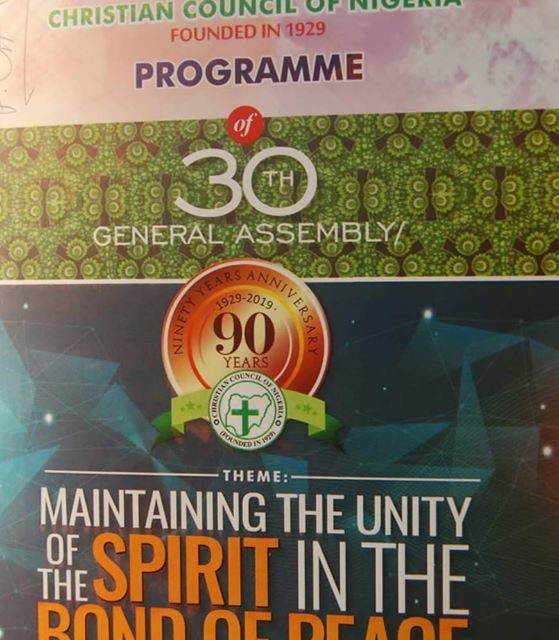
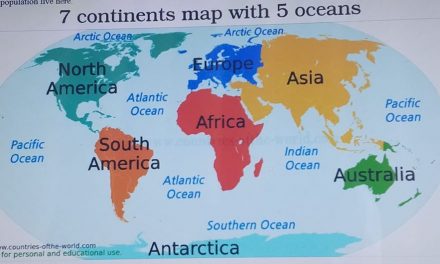
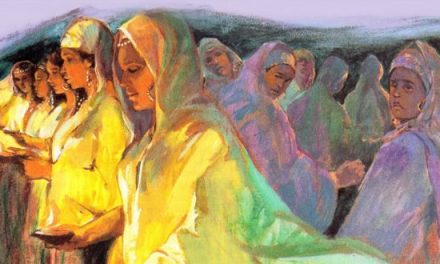
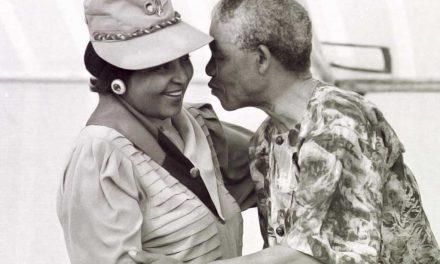
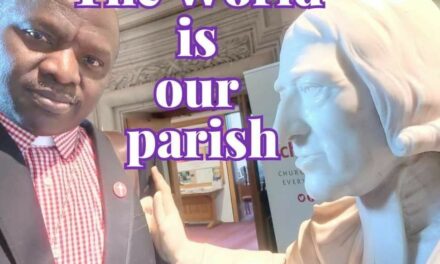





Presbyter sir, Happy New Year. I cannot trace the contact of Christian Council of Nigeria (CCN) for purpose of communication. I wanted to draw the attention of the Council to an issue that appears does not attract any attention – that of the impact of pension fund management in Nigeria on the lives of retirees of the Federal Public Service. You should kindly carry out an investigation and advise the Council accordingly.. Thousands of church members and persons from other religions annually retire from service. During their working life they contribute 7.5% of their salaries monthly while FGN matches that with 7.5% for retirement years. The 15% is released without fail to National Pension Commission (PenCom) via its agency and distributed to Pension Fund Administrators for safekeeping and investment. But on retirement, the retirees must wait for 12-24 months to be paid ANYTHING – monthly or in bulk for sustenance. How do they eat and meet other expenses such as health? Several retirees pass on as a result of hunger, disease, frustration, and shame. How do you tell your young, unemployed children and grandchildren you can’t buy ordinary garri for them to drink with peanuts? How many children drop out of school for one year and may never resume? How many marriages have been broken as family members go in search of food and other basic needs of life? Of course we don’t have statistics in Nigeria so little can be established such as number of retirees that have passed on and then the social impact of denial of legal rights. Is this not an official policy of starvation?
PenCom has a portfolio of N9.7 trillion recently depleted by N2trillion by way of government borrowing. The monthly due to all pensioners can be paid with little difficulty. My plea is just the regular pension for food, health, rent, school expenses of children, and certainly contribution in religious organizations that retirees belong be made available. Church contribution has strong psychological importance. The bulk money can come later. The concept of accrued rights is used as the primary instrument of starvation and has no place in good conscience and morality. There is no provision in the 2014 Act that stops PenCom from paying monthly pension one month after stoppage of regular salary. In Akwa Ibom State that is the practice.
Prayers:
That CCN should call on all Christians to raise a cry to God to save retirees. As Psalm 14:4 says, God’s children are being eaten like bread. Someone may ask, how have others survived? That question should not arise for people are from different backgrounds. People from less privileged backgrounds should not be compared with those from privileged backgrounds. And I can state with certainty that knowledge of a dismal future can compel someone that has a source to steal to hedge against starvation arising from incredible impending denial. How many workers can save enough to survive for one month? And we are talking of 12-24 months!
I will never call for violence or even peaceful protest. It will not achieve anything because those benefitting from this deliberate public policy of starving retirees will resist. I am calling for prayers: let God intervene with a strong arm and an outstretched arm and save lives, hopes, and futures. God always does it but we must make effort and it is better when it is corporate effort under a trusted and distinguished leadership.